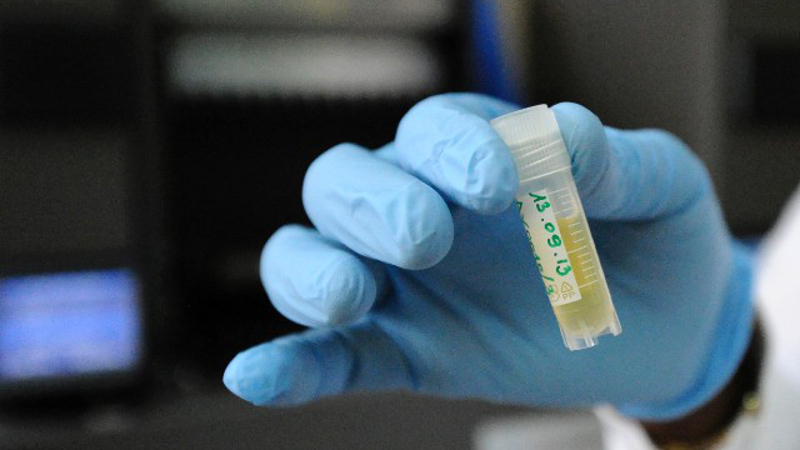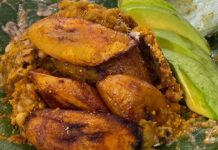A columnist of The Ghanaian Times, Mr. Collins Essamuah, has stated that ethnocentrism in Ghanaian politics is real but not dangerous to the country’s democracy.
He said though the Volta Region and the Ashanti Region remain the political “world banks” of the National Democratic Congress (NDC) and the New Patriotic Party (NPP) respectively, they have not by themselves guaranteed victory for either political party since 1992.
Mr. Essamuah spoke at a public forum on Elections and Ethnic Politics in Ghana organized by the management of Kofi Annan International Peacekeeping Training Centre (KAIPTC).
The forum formed part of a series of lectures on ‘Reflections on Security’ at the centre to tackle sensitive national issues by politicians and commentators.
Mr. Essamuah claims that victory for either party since 1992 has been based rather on voting patterns in the Western, Central and Greater Accra Regions, which are melting pots of West African cultural forms and ethnic groups.
Mr. Essamuah concluded that ethnocentric politics in Ghana cannot be harmful thereof.
But, it is difficult to understand how one Essamuah logic leads to another. Clarifications have to be made.
It is no rocket science understanding the socio-political geography of Ghana. The Danquah-Busia tradition, which is the mainstay ideology of the NPP, has its political roots in Kumasi, the Ashanti Region (Asantes).
The ideology of the NDC however, is one that perhaps is still evolving but nonetheless still blends Nkrumahism with a belief in J.J. Rawlings’ Pragmatism. It is pre-mathematical understanding why this cornerstone concoction finds its most staunch following in the Volta Region where almost the whole region comprises of the Gbe people (amongst them, majority Ewes).
The fundamental question is why these two ethnic groups are pitched against one another in modern Ghanaian politics?
Before the advent of the modern political system in the country Ghana, the Gold Coast itself had been subject to a Dahomey (Gbe) verses Ashanti political tradition.
It is important to put into perspective that none of those struggles – be they economic or political – to dominate the West African Coast during the Trans-Atlantic-Slave Trade period, resulted in any meaningful socio-economic or political gain for the sub region.
Rather these two ‘elephants’ plundered the natural and human resources of West Africa – sold millions of slaves to Europeans to carry to the New World – and left our lands still recovering from the havoc in 2013. Have we recovered from that shameful history?
I think not.
Mr. Essamuah may think that the modern structure of democracy in Ghana is stable. And I can agree to a very general extent. However, even in the swing regions of Western, Central and Greater Accra, various populations of Ewes (or people loyal to them) and Asantes (or groups loyal to them) do political battle to carry those regions.
Furthermore, the ethnic affiliation of the presidential candidate himself has stood a great deal in determining which ethnic group votes for the NPP or the NDC.
Hence, the Ghanaian political climate may be stable, but only because the rest of Ghana, the Ga people, other Akan ethnic groups, Fantes, other Gbe ethnic groups, the Northerners in Ghana etc. perhaps, continue to play a major buffer between the two warring factions – Ewes and Asantes.
And though Ashanti may never return to its glory, nor Dahomey to its formidable war machinery, Asantes and Ewes in Ghana, I am afraid, still find this furtive zone to continue to do battle within Ghana’s political climate.
That is why the current political climate in Ghana cannot be conducive when we begin to understand its historical underpinnings.
If anything at all, we should all eschew ethnocentric politics, for it has not, and it will not move our dear country forward. That is in sum, Nkrumah’s stance not only on Ghana but on the whole African Union.
Ethnic politics is just another name for ethnic warfare without rifles and machetes. Carried to excess, it will be enough to cause people to do unto their sisters, brothers and friends what they would otherwise shun away from.
That is not to say that we must abandon ethnic dignity, ethnic culture and ethnic diversity. These things make us Ghanaians. We are Ghanaians because we have inherited some of the most industrious, however debatable, cultures from many ethnic groups.
If anything, that makes us culturally wealthy. And that wealth, harnessed in its most profound and pure forms can be pushed to ignite a revolution of unbiased politics in Ghana and forge forward the socio-economic development of all her people.











Hi, this is a comment.
To delete a comment, just log in and view the post's comments. There you will have the option to edit or delete them.